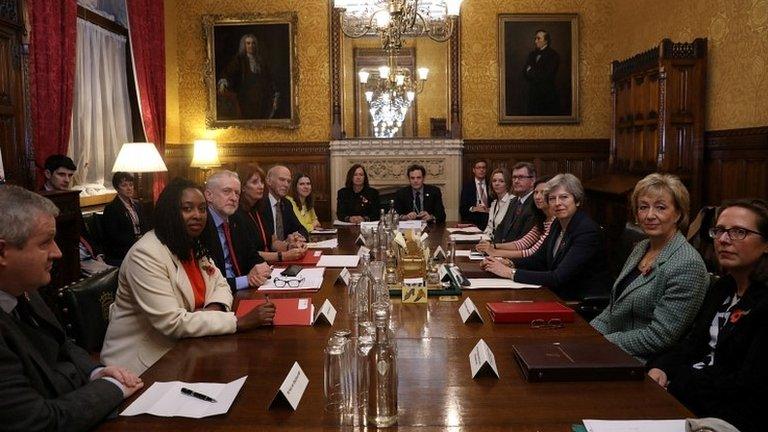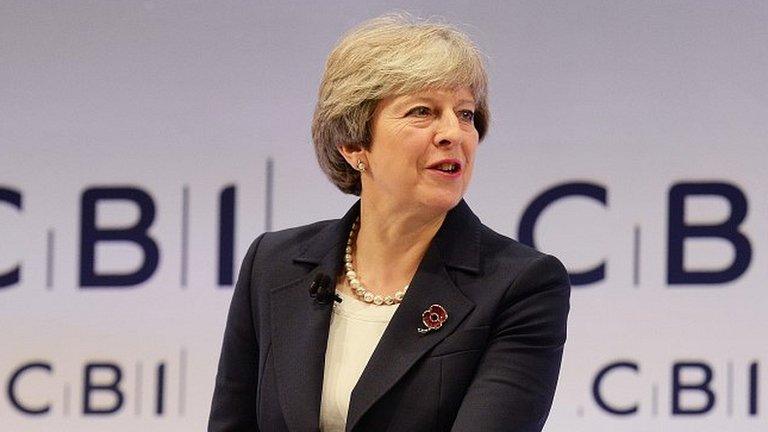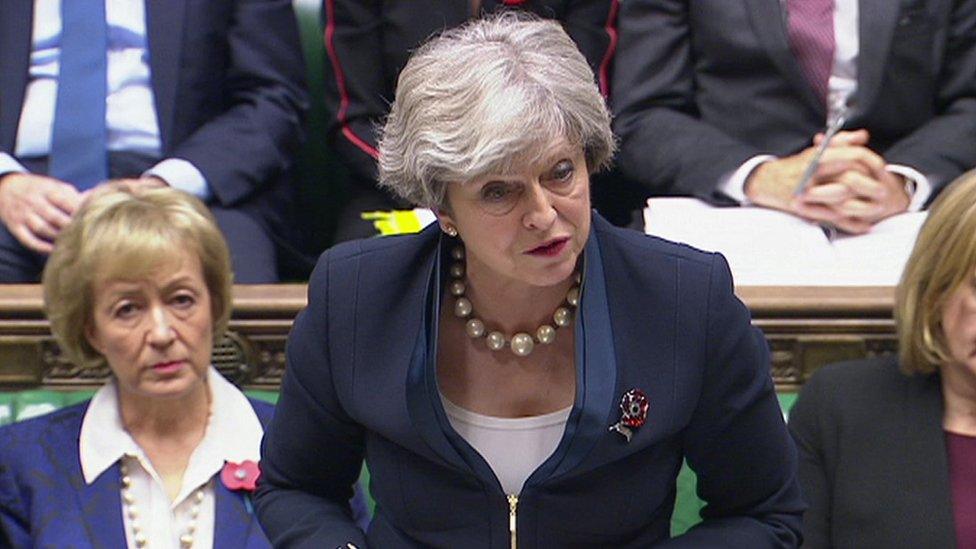MPs face tougher sanctions for sexual harassment and bullying
- Published

MPs found to have bullied or harassed their staff will have to write a letter of apology and undergo training, under new proposals.
In more serious cases, they could be suspended or forced to face a public vote on their future.
The plans were drawn up by a cross-party committee after widespread allegations of sexual harassment.
At the moment, MPs don't have any formal disciplinary procedures.
Discipline is handled by their parties and there are no independent channels for staff to raise complaints about their behaviour.
Commons Leader Andrea Leadsom, who chaired the committee, said: "This is a major step in bringing about the culture change that Parliament needs."
She acknowledged how difficult it was for MPs to be ejected from Parliament under the current rules, given how many had continued to sit after admitting, or being found guilty of, misconduct.
"It's for individual perpetrators to make a decision on whether to resign or retire," she told MPs.
"But it is absolutely the intention of this new procedure that they will and can be forced to do so, regardless of who they are and what their role is."
The committee also wants MPs to be given mandatory training in appropriate behaviour in the workplace, which would start after the next general election.
"Consent training" and lessons in how to recruit staff and avoid "unconscious bias" will also be made available.
Kate Maltby tells Today there needs to be "political will" to change attitudes towards harassment in Parliament
Green Party MP Caroline Lucas, who sat on the committee, rejected claims that training was unnecessary because MPs should already be aware of how to behave towards staff and colleagues.
"The MPs who are kicking up the most fuss about the training are precisely the ones who should be first in the queue for it," she told BBC News.
She also defended plans to grant anonymity to both the accusers and alleged perpetrators, amid claims that keeping the identity of an offender secret could prevent other alleged victims from coming forward.
'Media spotlight'
The committee had wanted to ensure complainants were "given the power in this process", she said, but "it doesn't take very much investigation" to work out the identity of an accuser if the MP employing them is named.
If the most serious sanctions were applied, the identity of the alleged perpetrator would be made public, under the committee's proposals.
The complainant can "seek justice without having their names splashed across the newspapers" says Mrs Leadsom
MPs are in a "constant media spotlight" and "checks and balances" were needed to guard against "vexatious" complaints, the report said.
Under the new proposals, which will also apply to members of the House of Lords, a trained sexual violence adviser will be appointed to handle complaints.
The adviser would lead an "informal" resolution process, which could result in a written apology for the complainant or workplace training for the perpetrator.
Complainants would be given "practical and emotional" support, whether or not they decide to take the matter to the police or pursue their claim.
'Poisonous culture'
In more serious cases, the Parliamentary Standards Commissioner would investigate and recommend the suspension of an MP or peer for a specified period.
This could trigger proceedings for recall of an MP - resulting in a new election in his or her constituency - or the expulsion of a peer, under procedures introduced in 2014 by the coalition government.
The committee also called for a new code of behaviour, independent of the political parties, applying to everyone on the Parliamentary estate, including visitors.
In a survey carried out by the MPs' working group more than 250 people said they had seen or experienced sexual harassment in the past year.
The survey, which got 1,377 responses, or 17% of the Westminster workforce, found that as well as 19% reporting experience of sexual harassment, 39% had experienced non-sexual harassment or bullying in the past 12 months.
It was "unacceptable" that such "inappropriate behaviours" have taken place across the "parliamentary community", the report added.
Labour MP Valerie Vaz said she hoped the report would create a "safe and secure and constructive workplace" for everyone working at Westminster.
The SNP's Pete Wishart, who also helped draw up the recommendations, said he hoped they would "signal the end of the poisonous patriarchal culture that has characterised so many of the relationships in this House".
The proposals will be debated by MPs later this month.
- Published10 January 2018

- Published6 November 2017

- Published6 November 2017

- Published1 November 2017
